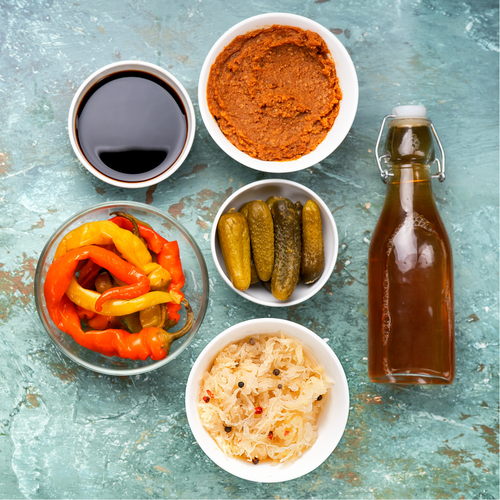Generally speaking, regular bowel movements are defined as bowel movements 3 times a day to 3 times a week. Anything less is considered constipation. This is often accompanied by difficult bowel movements, hard stools, and sometimes pain.
The main concern is that this is a common problem, which mainly stems from our lifestyles. In fact, according to the French Association for Continuing Medical Education in Hepato-Gastro-Enterology, 16% of adults are affected by these digestive disorders, with women being the most affected, with 2 out of 3 women reporting suffering from them. These figures are also underestimated, since the issue is not necessarily addressed by everyone.
However, there are some good rules of conduct to avoid this problem. Let's take a look at the Do's and Don'ts of regular bowel movements.
DO!
#1 - Take care of your diet
This is, of course, the first aspect to work on to achieve regular transit. The progress of the food bolus in the digestive tract is largely governed by the presence of fiber and water. Indeed, fiber absorbs between 3 and 25 times its weight in water, it increases the mass of stools and creates a gel that passes more easily and quickly through the digestive tract. For this, it is essential to consume 25 to 30 g of fiber and 2 L of water per day. These are recommendations that are not met for a large part of the population, which contributes to the increase in the prevalence of transit disorders.
#2 - Work on your stress
Easier said than done, but stress has recognized consequences on digestive comfort. If you are prone to digestive problems, don't ignore the signs of stress. To learn more about how to manage stress, you can refer to the article "Do & Don'ts for Effective Stress Management."
#3 - Turn to herbal medicine.
Conventional methods often fail to improve the problem. The causes may be too multifactorial and difficult to address. You can turn to a multitude of natural solutions to facilitate bowel movements.
OF WHICH
#1 - Neglecting physical activity
This is indeed an important factor. Studies have recently highlighted the importance of physical activity as the last major bulwark in treating bowel disorders, along with diet and hydration. Engaging the intestinal muscles promotes proper bowel function. So don't hesitate to take a little digestive walk occasionally!
#2 - Eating too quickly/on the run
To facilitate the work of the stomach and intestines, it is essential to chew well. This limits the additional cutting work inflicted on the organs involved in digestion. In addition, our saliva contains digestive enzymes essential for breaking down carbohydrates. Taking the time to chew therefore facilitates the breakdown of food and therefore its progress through the digestive tract. This also helps reduce abdominal pain!
#3 - Multiply the risk factors for dysbiosis
An unbalanced microbiota is one that disrupts the entire functioning of the digestive system. Our intestinal bacteria are essential to the work of breaking down and digesting our food, and we must therefore preserve their environment. However, we are surrounded by risk factors that can unbalance our intestinal flora, so we must pay attention to them to avoid them as much as possible. These include tobacco, alcohol, pollution, processed foods, stress, treatments such as antibiotics, etc.













